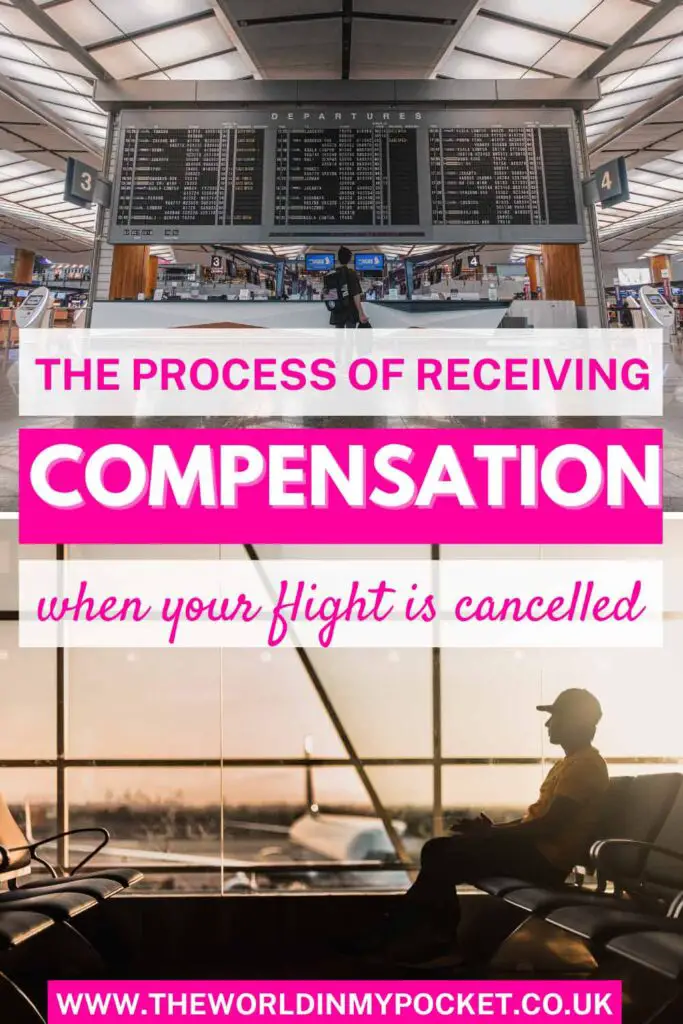The unexpected cancellation of a flight can throw even the most meticulously planned travel itinerary into disarray. Understanding your rights and the process of seeking compensation for flight cancellation is essential in these situations. This article will guide you through the complex landscape of airline policies, legal regulations, and practical steps to ensure that you are adequately compensated for any disruption to your travel plans.
Decoding Airline Policies on Flight Cancellations

Airline regulations concerning flight cancellations are frequently dictated by specific rules, such as the European Union’s Regulation (EC) No 261/2004, which prescribes reimbursement and support to travelers in particular situations. Under this directive, travelers may be eligible for monetary redress if their flight is aborted less than 14 days prior to the planned departure time. Depending on the flight’s distance, redress can vary from €250 for short-distance journeys to €600 for extended-distance flights.
Nevertheless, redress is not granted in every instance. If the carrier can substantiate that the cancellation was due to exceptional circumstances beyond its influence, such as inclement weather conditions or restrictions imposed by air traffic control, then compensation for flight cancellation may not be obligatory. Furthermore, if travelers are notified of the cancellation more than 14 days ahead or are presented with an alternative routing that does not substantially alter their travel arrangements, they may not qualify for redress.
Documenting and Preserving Evidence for Claims
When pursuing a claim for compensation due to flight cancellation, documenting and preserving evidence is a critical step. Travelers must be capable of substantiating the specifics of the cancellation, encompassing the rationale furnished by the carrier, the timing of the alert, and any dialogue or proposals extended by the airline in reaction to the cancellation.
Proof may encompass boarding tickets, reservation confirmations, electronic mail or text alerts from the carrier, snapshots of airport information displays, and any communication with airline personnel or customer support representatives. If the airline offers an alternative flight or other forms of assistance, such as meals or accommodation, these offers and the passenger’s response should also be documented.
Tips for Effective Communication with Airlines
Here are some tips to ensure that your interactions with the airline are productive and help move your claim forward:
- Utilize suitable channels: Employ the airline’s favored methods for dialogue, whether it’s their customer support hotline, electronic mail, or social media platforms.
- Preserve records: Chronicle all interactions with the carrier, encompassing dates, instances, names of agents, and the substance of the conversation. This can be vital if you need to intensify the claim.
- Stay professional: Uphold a composed and respectful demeanor, even if you are exasperated or incensed. Being antagonistic or discourteous is unlikely to aid your cause.
- Furnish evidence: If pertinent, incorporate duplicates of relevant documents, such as boarding tickets, reservation confirmations, or any other proof that bolsters your claim.
- Pursue follow-up: If you don’t obtain a prompt reply, follow up with the carrier, citing your preceding communication and reiterating your request.
- Comprehend your rights: Acquaint yourself with the applicable statutes and regulations, such as EU Regulation 261/2004, so you can assert your rights with assurance.
- Engage professional aid if required: If the airline is unresponsive or contests your claim, contemplate seeking professional aid from a legal specialist or a company that specializes in flight compensation claims.
Seeking Alternative Dispute Resolution (ADR) for Compensation Disputes

Alternative Dispute Resolution (ADR) is an increasingly popular method for resolving compensation disputes between passengers and airlines, including those related to flight cancellations. ADR offers a more streamlined and often less confrontational approach compared to traditional legal proceedings. It involves a neutral third party, such as a mediator or arbitrator, who facilitates discussions between the aggrieved passenger and the airline, aiming to reach a mutually agreeable resolution.
For passengers seeking compensation for flight cancellation process, ADR can be an attractive option. It often leads to quicker resolutions and can be less expensive and time-consuming than going to court. Many airlines participate in ADR schemes, and some countries even require it as a preliminary step before legal action can be taken. Passengers considering ADR should research the specific procedures and requirements for their jurisdiction and the airline involved, as these can vary widely.
In conclusion
Understanding the rights and entitlements related to compensation for flight cancellations is essential to ensure that passengers are not left stranded or financially burdened. By being informed and proactive, passengers can turn an unfortunate disruption into an opportunity to assert their rights and seek fair compensation. The flight cancellation process may be complex, but with the right knowledge and approach, passengers can successfully navigate the challenges and find satisfactory resolutions.
For more similar articles, check out my recommendations below:
- How to avoid the drop off charge at Gatwick Airport
- Airport hacks you should know about
- How to get affordable business class tickets
Like it? Pin it!

Disclaimer: Some of the links on this website are “affiliate links.” This means that if you click on the link and do a purchase, I will receive an affiliate commission at no extra cost for you. This helps me keep my website running and continue to share my travelling knowledge with you. I thank you for booking your flights or hotels using the links on my website. Regardless, I only recommend products or services I use personally and believe will add value to my readers.




